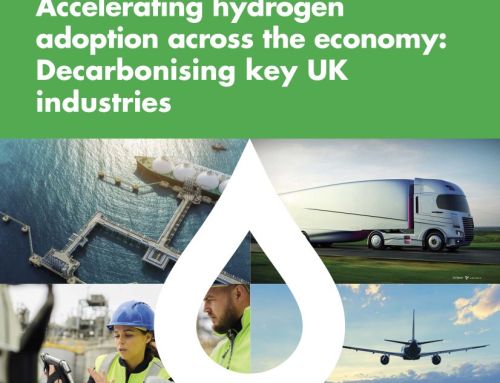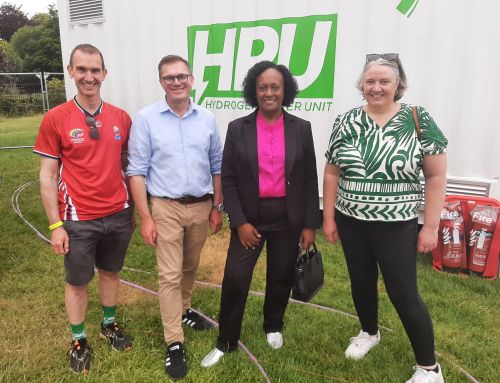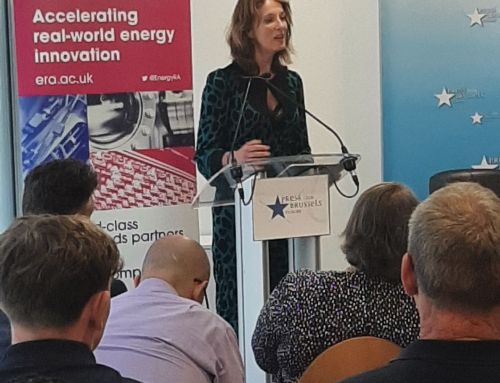Businesses can’t fight climate change alone
Collective action is necessary to spark the UK’s leadership position in fighting climate change says Professor Martin Freer, director of the Energy Research Accelerator, in his latest blog.

The turmoil of Brexit has distracted both government and opposition to the point that the juggernaut of climate change will impact before we, collectively, have had a chance to look round.
The focus is not unwarranted – the impact of Brexit on the UK economy may already be measurable, with predictions that it could shrink the economy by up to 1.5% (or tens of billions of pounds) in the case of a no-deal. Even without Brexit (deal or no-deal), political paralysis and lack of long-term clarity will affect budgetary flexibility. And that in turn will have an impact on the funding of large-scale infrastructure projects, such as HS2.
However, the impact of climate change is also likely to be financial and significant. A report from the US government on the impacts of climate change on society indicates that unless action is taken, climatological events could grow to cost the country nearly half a trillion dollars annually. The UK will feel such costs either directly, or indirectly.
Up until now, the UK has been bold in its approach to climate change, through the original 2008 Climate Change Act and the recent commitment to being net-zero by 2050. Cities have grasped the nettle and are being bolder with net-zero targets of 2030. But credible national and local delivery strategies seem to be thin on the ground.
Globally, this ambition is driving a cleantech market valued at trillions of dollars per year and with a sector growth of 10% per year. The opportunity to prioritise national investment into cleantech seems obvious – decarbonise UK’s energy and transport and become world leaders in technology, systems and customer solutions.
Some will argue that the growth in offshore wind demonstrates this already, but there was a 30% drop in renewable energy jobs between 2014 and 2017 and it has been reported that investment in renewables in the UK more than halved between 2015 and 2017.
The transition that still needs to take place in the UK’s energy and transport system is enormous. The focus has finally fallen on the decarbonisation of heat, left almost to last as it is most challenging. Large-scale city-based infrastructure has been successfully connected to district heating schemes, but these are reliant on Combined Heat and Power generation using gas and are therefore not low carbon. New builds also offer an easy win through energy efficient design. However, the vast majority of the building stock is old with poor thermal insulation.
The large-scale deployment of heat pumps, perhaps hybrid design, that can use both gas and electricity, is one option, as is the possibility of replacing natural gas with hydrogen into the gas grid. Neither are trivial. The first requires a massive deployment and a need to retrofit thermal insulation to a housing stock with a high degree of variability in build design. And the generation of a sufficient amount of green hydrogen – that which does not produce its own carbon emissions – is unlikely to happen any time soon and needs to go through an ambitious demonstration phase before deployment.
Decarbonisation will place heavy reliance on wind and solar power and, like it or not, nuclear generation, large and small. The removal of natural gas from the energy system will require storage, both electrical and thermal, to deal with the intermittency of both supply and demand. Some have argued that we might be able to achieve electrical storage at least through second-life use of batteries from electric vehicles and the capacity supplied by electric vehicles plugged into the grid. Again the calculations make it possible, but the realisation is challenging – not least because the roll out of electric vehicles and infrastructure is slower than predicted and required. We need to take a more diverse approach.
The political inertia and belief that business alone can deliver if the market conditions are right is closing the window on the opportunity for the UK to take a lead on a delivering solutions, skills and services associated with low carbon. The boldness of ambition needs to be on the scale of the plans for large infrastructure projects such as Crossrail, HS2 and the delivery of the Olympics. The rest of industry will follow from the sector leadership which the UK desperately needs to find as its manufacturing and now finance sectors are being undermined.
There are still areas where the UK can take a leadership position. These include the demonstration of large-scale alternative energy storage technologies alongside hydrogen generation and utilisation. But industry needs signals of commitment, beyond the current scale, and long-term certainty and sharing of risk.
The capability exists if there is a will to act collectively and we at the Energy Research Accelerator, are keen to work with industry across the energy, transportation and construction sectors as well as government bodies to enable this next essential step for the UK.





